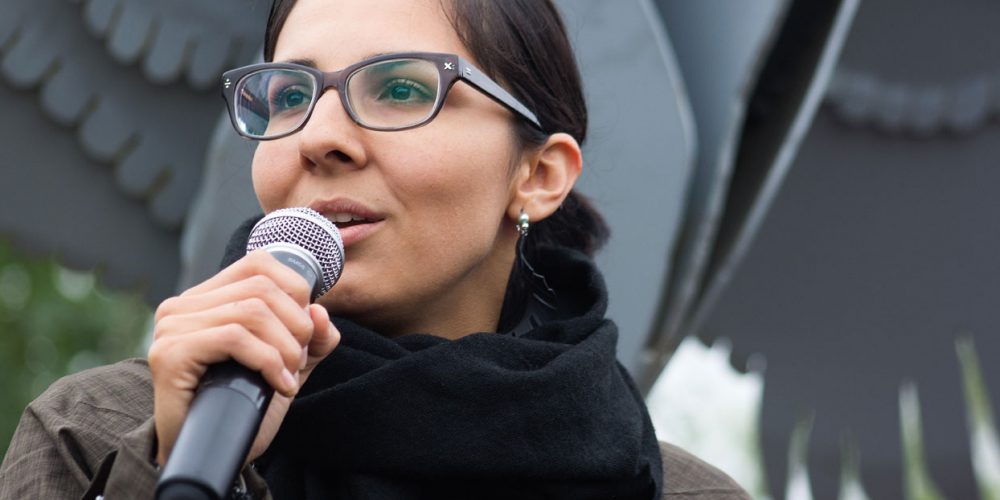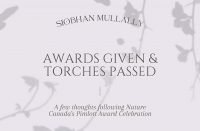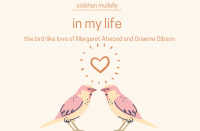DAVID SUZUKI
MY FATHER. My earliest memory from childhood was when I was four, and he was taking me camping. It was my father’s absolute love of the outdoors. He was an avid gardener. He would gather plants and small trees wherever he went and plant them in his garden. This was before World War Two, we lived in Vancouver, and we’d be going out fishing and camping on weekends. I don’t think there is any greater way to teach you a love of the natural world, and so I am ever grateful to my father for that.
DAVID SUZUKI
MY FATHER. My earliest memory from childhood was when I was four, and he was taking me camping. It was my father’s absolute love of the outdoors. He was an avid gardener. He would gather plants and small trees wherever he went and plant them in his garden. This was before World War Two, we lived in Vancouver, and we’d be going out fishing and camping on weekends. I don’t think there is any greater way to teach you a love of the natural world, and so I am ever grateful to my father for that.
I went to college in the States. I fell in love with genetics, this really hot area of biology, and I was all set to become a hotshot geneticist. In 1962, I had my first job back in Canada at the University of Alberta, and a woman named Rachel Carson published a book called Silent Spring.
That was a really big shock for the world, because up until that point it was like, science and technology are wonderful and the economy is booming and everything is great. The guy who found that DDT killed insects, Paul Müller, won a Nobel Prize in 1948 for his discovery.
Silent Spring was all about the unexpected effects of pesticides. And as a geneticist, we focus on a chromosome or a gene and try to study one little part of nature. When I read her book, it was as if her message was written to me as a scientist. And that was: Yeah, you scientists are clever; you can invent things like DDT. But the lab is not the real world. You study the effect of DDT on an insect and a plant grown in a growth chamber or in the flask, but in the real world it’s much more complicated. It rains! The wind blows, the sun shines – all kinds of things happen that you never see in the lab.
Out in the real world, everything is connected to everything else.
So you spray chemicals in a field to kill pests and you end up affecting fish and birds and human beings. I thought I was investigating the very essence of nature and what I would discover in the lab was so applicable to the bigger world. And I realized then that because of this idea that we’re so powerful in genetics, we started applying ideas and ended up having all kinds of unexpected consequences. It was Rachel Carson that opened my eyes to a different way of looking at what I was doing.
ELIZABETH MAY
MARY GORMAN works tirelessly against very large, vested interests in the fossil fuel industry, and against provincial governments that think they’re going to get revenue out of oil and gas in the Gulf of St. Lawrence, which is essentially a quite enclosed marine ecosystem. The Gulf has very lucrative fisheries still, and Mary works as a volunteer on a shoestring with no substantial organization behind her, raising awareness and effectively fighting a lot of different proposals. The current one is called Old Harry, and they want to drill a deep-water oil well midway between the Magdelene Islands and the coastland of Newfoundland and Labrador.
Without an environmental review, the Harper administration has identified the Gulf of St. Lawrence as a place where they want to develop oil and gas. It’s such a little-known issue, and there are lots of people who fight oil and gas there – the First Nations in the territory, many fishery unions, community organizations – and as is often the case in these kinds of campaigns, there’s one person who’s a linchpin and never gives up.
Mary lives in Merigomish, Nova Scotia, and works out of her home with a loose coalition called Save Our Seas and Shores. By background she is also a journalist and sometimes a screenwriter, but all her own work goes by the sidelines because she’s so dedicated to keeping the Gulf protected from oil and gas. If it wasn’t for her dogged determination, I think they would’ve had oil wells by now.
Mary and I have the same approach, I think. I’ve always advocated that you never give up. And certainly Mary proves that. You don’t turn your back on proponents of an industrial project; if you want to stay on top of it, you have to be vigilant. And Mary is very, very vigilant. She’s … indomitable.
She’s always prepared with tremendously detailed documentation and she says what’s happening, how the industry is abusing a process, how the regulators are so lax. She’s also a very effective communicator. She’s just an extraordinarily strong activist that most people wouldn’t have heard of. Mary never fails to be where she needs to be when she needs to be there.
TZEPORAH BERMAN
ERIEL DERANGER works with the Athabascan Chipewyan First Nations. And it’s one thing to work on an issue that you know intellectually or even in your heart is important. It’s another thing to work on an issue that directly impacts your community, to have the energy to get out there every day and talk about something that is incredibly controversial and also affects the lives of those you love.
Eriel is a very powerful spokesperson on both environmental issues and Indigenous rights, in her community and internationally. Over the last several years I have been so impressed by her capacity to weave together the financial implications of tar sands expansion with the local ecological impacts and global climate implications, and to tell that story in a way that is incredibly effective. She not only has one of the most sophisticated analysis and in-depth grasps of one of the most important issues that we face as Canadians, but she also has such a graceful and effective way of organizing that I think many people can learn from. She shows incredible leadership while at the same time teaching us all a deep respect for First Nations elders’ voices and those who live in affected communities.
She is a big part of organizing the Tar Sands Healing Walk every year. It’s a very interesting event because it’s not a protest; it’s a spiritual gathering. It’s a healing for those communities. This year Eriel and other organizers brought together over 500 people from all walks of life to come and learn from First Nations leaders and elders in Fort McMurray. There were people there from all over the place that had been brought together and it was an incredibly moving experience for so many of us.
When I first met Eriel, she was working for Rainforest Action Network and Sierra Club. She had designed a finance campaign that held banks accountable for the big statements they make around supporting Indigenous rights and responsible resource use. She had organized in-depth research on project financing at many of the largest banks and was really exposing the contradictions between their so-called principles and their commitment as companies and what they were actually financing. During that time she also organized protests from San Francisco to Toronto. And then a couple of years later our paths crossed again when she was delivering a report on the impacts of Shell’s exploration – not only in the oil sands, but also in their exploration in the Niger Delta and Alaska – at the Shell AGM in the Netherlands. Our paths have crossed many times since then.
She does a lot of work in helping to train members of her own community to really find their voice, to speak to the media about their issues, about oil sands and the growing cancer rates in their communities. But then she also seems just as comfortable and effective working internationally.
I’m a mom, and I’m inspired by her ability to be a mom and to do this work and to balance the needs of her family and her community and her passion. I think she’s a real role model for women everywhere.
Emily is former A\J web editor and a graduate of Environmental Studies at Wilfrid Laurier University. Emily is an urban homesteader who tries to live as plastic-free, local and organic as possible, and can be intense about it.













